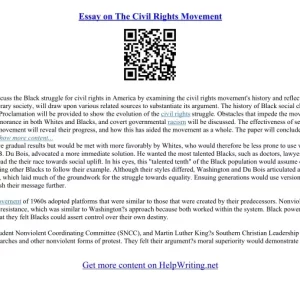
Southern Hospitality: Then & Now – A Look at Changing Traditions
Southern hospitality. The very phrase conjures images: sun-drenched porches, iced tea sweating in tall glasses, the gentle sway of a hammock, and the unwavering warmth of a welcoming smile. But is this idyllic picture a relic of the past, a romanticized vision fading under the pressures of a modernizing South? Or has this unique cultural tradition adapted, evolving to embrace a new era while retaining its core values?
A Legacy of Generosity: The Roots of Southern Hospitality
The roots of Southern hospitality are deeply entwined with the region’s history, a complex tapestry woven from threads of both generosity and power dynamics. Planters, in their grand houses, cultivated an image of gracious living, extending lavish hospitality as a display of wealth and status. But alongside this elite display existed a genuine community spirit, born of necessity in a region often isolated and challenged by harsh conditions. Neighbors helped neighbors; sharing resources, offering comfort, and forging bonds of mutual support were essential for survival. This reciprocal relationship formed the bedrock of Southern hospitality, creating a culture where generosity was not just expected but intrinsically woven into the fabric of daily life.
The Pillars of Tradition:
The traditional hallmarks of Southern hospitality are numerous, often overlapping and interwoven:
- Unconditional Welcome: The open door, the offer of refreshment, the genuine desire to make guests feel comfortable and at home – these are cornerstones of the tradition.
- Generosity of Spirit: This transcends material gifts; it’s about offering time, attention, and emotional support. Sharing stories, offering advice, lending a helping hand – these acts cemented strong community ties.
- Politeness and Respect: Formal manners, courteous language, and a respect for elders are deeply ingrained. This extends not just to family and friends but to all who enter the community.
- Emphasis on Community: A strong sense of collective identity and shared experiences fostered mutual support and neighborly bonds.
| Tradition | Then | Now |
|---|---|---|
| Welcome | Open door policy, lavish meals | Warm welcome, adapted to modern lifestyles |
| Generosity | Shared resources, physical assistance | Emotional support, community involvement |
| Politeness | Formal manners, strict etiquette | More relaxed, but politeness remains valued |
| Community | Close-knit neighborhoods, shared events | Online connections, hybrid community models |
The Shifting Sands: Hospitality in the 21st Century
The South is transforming. Urbanization, economic shifts, and a diversifying population are reshaping the landscape and the traditions that define it. While the core values of Southern hospitality remain, their expression has evolved.
The open-door policy, once a literal invitation into one’s home, now extends to more inclusive spaces – community events, local businesses, and online forums. Generosity takes new forms: volunteering time at food banks, supporting local charities, or offering assistance through online platforms. While formal manners have softened, politeness and respect remain highly valued, adapting to a more diverse and inclusive social landscape.
Challenges and Adaptations:
The changing South faces challenges in preserving its hospitable traditions. The pressure of modern life, increased mobility, and a decline in close-knit communities can erode the sense of shared responsibility and mutual support. The idealized image of Southern hospitality can also obscure the complex realities of racial inequality and historical injustices that have shaped the region’s social fabric.
Redefining Hospitality: A Contemporary Perspective
Today, Southern hospitality is less about a rigid set of rules and more about a spirit of generosity and inclusivity. It’s about forging connections, creating a welcoming environment, and extending kindness to all. It’s about recognizing and addressing the complexities of the past while building a more equitable and welcoming future. This modern iteration embraces diversity and inclusivity, recognizing that genuine hospitality transcends social boundaries and welcomes all with open arms. It’s a vibrant, evolving tradition that continues to shape the South’s unique identity, reflecting both its rich history and its bright future. The spirit of hospitality endures, constantly adapting and evolving to encompass the evolving needs and faces of a dynamic society. It is, in essence, a testament to the enduring strength and resilience of the human spirit.

Additional Information
Southern Hospitality: Then & Now – A Deeper Dive into Shifting Traditions
The concept of “Southern Hospitality” is more than just sweet tea and polite manners; it’s a deeply ingrained cultural phenomenon with roots stretching back centuries. Examining its evolution reveals fascinating shifts in its expression, driven by social, economic, and demographic changes. While the core values of generosity and graciousness remain, their manifestation has undergone significant transformation.
The Historical Context: A Foundation of Plantation Culture and Community:
Traditional Southern Hospitality, particularly in the antebellum South, was deeply intertwined with the plantation system. The elaborate social rituals and displays of generosity served not only to maintain social hierarchies but also to project an image of wealth and power. The “open door” policy, while genuinely welcoming to certain guests, often masked the exploitation and inequality inherent in the system. This historical context is crucial to understanding the complexities of modern interpretations. For example, the emphasis on lavish meals and extended visits, while perceived as expressions of warmth, were also tied to demonstrating the planter’s capacity to provide for numerous guests – a demonstration of both affluence and control.
The Impact of Civil Rights and Social Change:
The Civil Rights Movement irrevocably altered the landscape of Southern society, impacting the very fabric of Southern Hospitality. The previously exclusive nature of hospitality, often limited to a select white elite, began to be challenged. The struggle for racial equality forced a reassessment of the traditional practices, exposing the hypocrisy of a system that offered graciousness to some while denying basic human rights to others. While some resisted change, many Southerners embraced a more inclusive vision of hospitality, reflecting a broader shift towards social justice. However, the legacy of racial segregation continues to shape perceptions and experiences of hospitality, particularly in the nuances of social interactions.
Economic Transformations and the Modern South:
The economic diversification of the South, moving away from its agricultural roots, also impacted Southern Hospitality. The rise of tourism, for instance, has commodified certain aspects of Southern charm, leading to a somewhat staged and commercialized version of hospitality. Think of the proliferation of “Southern-themed” restaurants and attractions, often prioritizing profit over genuine connection. This commercialization raises questions about authenticity and the potential dilution of the original cultural values.
The Digital Age and Shifting Social Interactions:
The advent of the internet and social media has profoundly influenced how hospitality is expressed. While physical gatherings remain important, digital platforms offer new avenues for connection and community building. Online forums and social media groups dedicated to Southern culture demonstrate a continued interest in preserving and sharing traditions. However, this digital space also presents challenges, such as the potential for misrepresentation and the blurring of lines between genuine hospitality and performative displays for online audiences.
Case Study: The Evolution of Bed and Breakfasts:
The bed and breakfast industry offers a compelling case study. Initially reflecting a traditional form of hospitality, welcoming travelers into private homes, many modern B&Bs have evolved into more commercial ventures, focusing on standardized services and amenities. This shift highlights the tension between preserving the spirit of genuine hospitality and adapting to the demands of the modern tourism industry.
Future Trends and Challenges:
The future of Southern Hospitality will likely be shaped by ongoing demographic shifts, economic changes, and evolving social values. Maintaining the core values of generosity and graciousness while adapting to a more diverse and inclusive society remains a significant challenge. The emphasis on genuine connection, rather than performative displays, will be crucial for ensuring the longevity and relevance of this important cultural tradition. Further research could explore how younger generations are reinterpreting and redefining Southern Hospitality, incorporating elements of diversity and inclusivity into their practices.
In conclusion, Southern Hospitality is not a static concept but a dynamic and evolving tradition. Understanding its historical roots, the impact of social and economic changes, and its adaptation to the digital age is crucial for a nuanced appreciation of its complexities and its future trajectory. The challenge lies in preserving the spirit of genuine warmth and generosity while adapting to the changing realities of a modern South.






